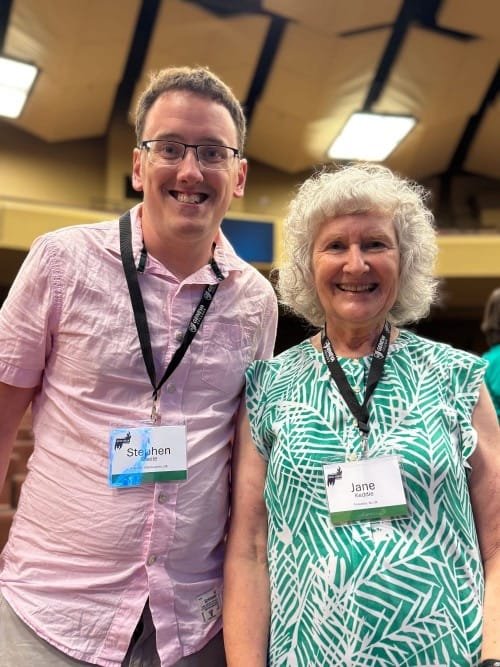I’ve just about calmed down after Stranraer’s extra-time play-off win. Billed as the most important match in the club’s history, there were plenty of nervy moments across the two legs. Everyone in the ground that day is still asking how João Baldé’s two chances – towards the end of normal time and extra time respectively – stayed out. If they had, it would have been hard to see a way back into the tie – and a way back into the SPFL. Sam North (‘Footy Adventures’ on YouTube) summed it up with the title: ‘150 Years of History Saved in 120 Minutes’. The club were on the brink – but came back.
As a minister, I couldn’t help but apply it to churches. We live at a time when many churches – often older than 150 years – are closing. When it comes to a football club, it’s fairly obvious why its loss would be a bad thing for a community. But do we lose anything when churches close?
Many would say ‘no’. They belong to a different era, and there’s no need for them in modern society. Others mourn the loss of architecture, or of a building with which many memories are associated – or of a place where they hoped their funeral would take place.
But can a case be made for the closure of churches being a net loss for a community? Perhaps surprisingly, I would argue that the closure of a church is not a loss in every case. When the Bible’s message is no longer proclaimed, and a church is functioning out of mere traditionalism, there’s little point in it still existing. In fact, it’s worse than that. If those looking for hope happen to come in, all they will find are counsels of despair: ‘be a nice decent person and you’ll earn your way to Heaven’. Self-improvement is the message of every religion except Biblical Christianity.
It's also worth pointing out that a building closing and a church closing are not the same thing. In the New Testament, ‘the church’ is the people, not the building. A church building is simply where the people meet to worship. Sadly, by the time a building closes, the church has often long since stopped being what it was meant to be – a worshipping community of diverse people who genuinely love one another because of the Holy Spirit’s work in their lives.
But what about when Bible-believing churches close? To put it another way: what does a post-Christian Scotland look like? We value things like compassion, freedom, equality, and consent – but as Glen Scrivener demonstrates in his book ‘The Air We Breathe’, these are fundamentally Christian values. When churches close, it’s not as if these things disappear overnight. But when the foundations on which they’re built disappear, we discover they aren’t as self-evident as we once thought. Just ask the Romans.
It was reported last week that for the first time, most people in Scotland say they are not religious. Yet a non-religious society still has the concepts of guilt, sin and shame – but without the redemption which Christianity offers. Many thought that as Christianity disappeared, society would become less moralistic. The opposite has proved to be the case. People have a keen sense of morality – recycle, don’t eat meat, reduce your carbon footprint. Those who fail to support the ‘right’ cause feel the wrath of cancel culture. Our society has as keen a sense of morality as ever – but no place for forgiveness.
If Stranraer had gone down, the effects would have been instant and obvious: Civil Service Strollers and Heart of Midlothian ‘B’ visiting Stair Park, smaller crowds, a vastly reduced budget. The closure of gospel-preaching churches may not have such an immediate impact, but a post-Christian Scotland may not be the utopia many expect. Jonny Cash sang: ‘They say they want the kingdom, but they don't want God in it.’ And as Scrivener puts it: ‘The kingdom without the King is not a place of liberation so much as a place of judgment’.
Above all the church is important because it is ‘through the church that the manifold wisdom of God might now be made known’ (Ephesians 4:10). That wisdom was seen above all at the cross of Jesus Christ – where God’s justice and mercy shone out so clearly. Stranraer fans could sing ‘We are staying up’, because of what those on the pitch had done. In the same way, the believer looks at the cross, and sees that, because of Jesus, a place in God’s family is now ours, and the door of Heaven itself has been opened.
Published in the Stranraer & Wigtownshire Free Press, 30th May 2024












